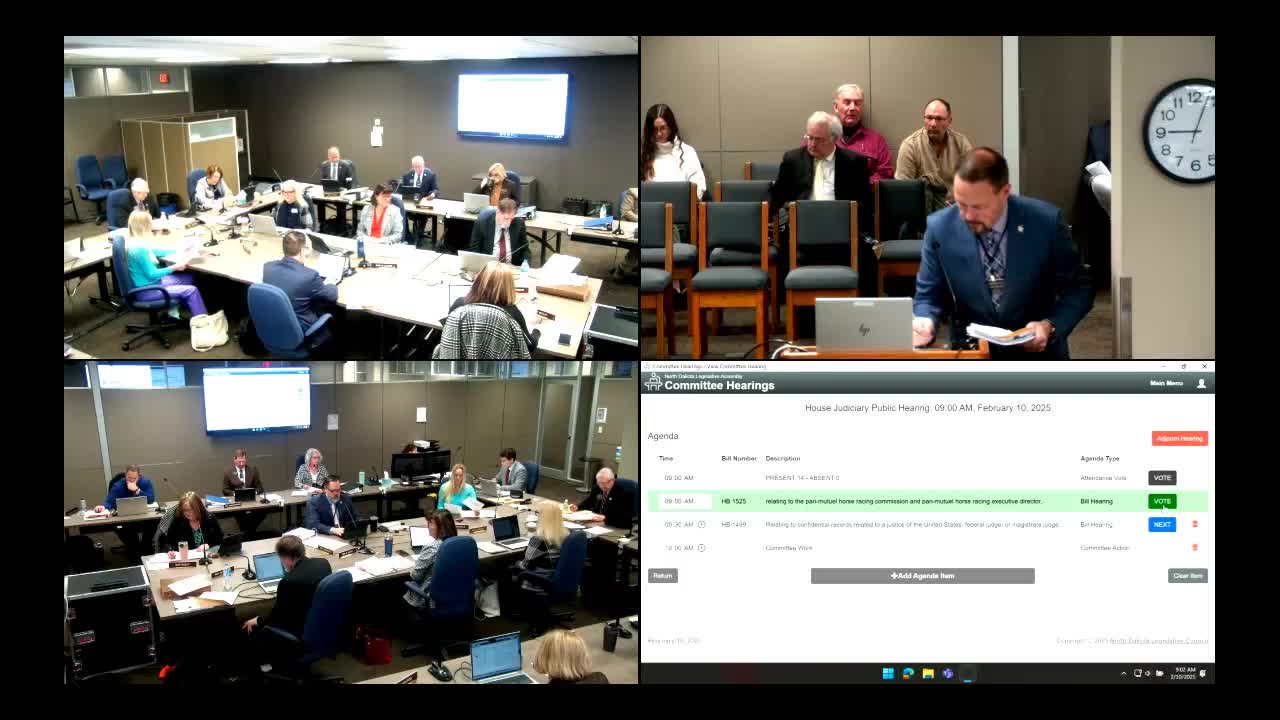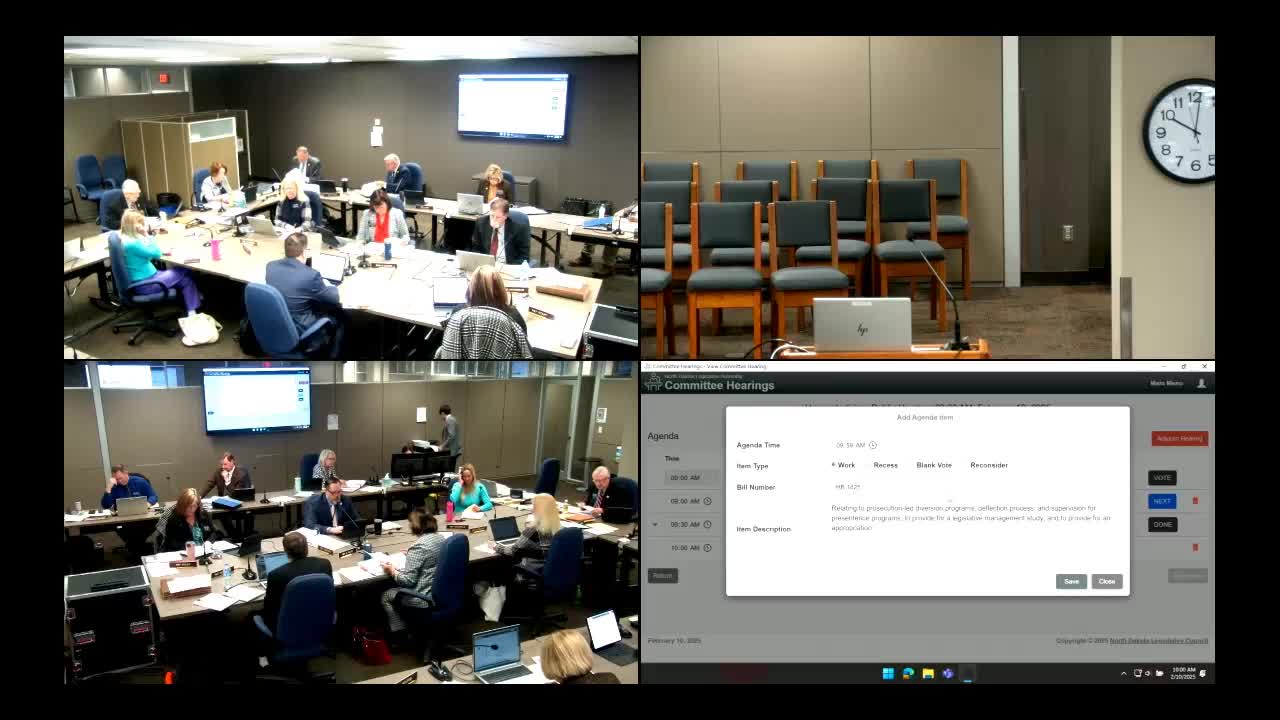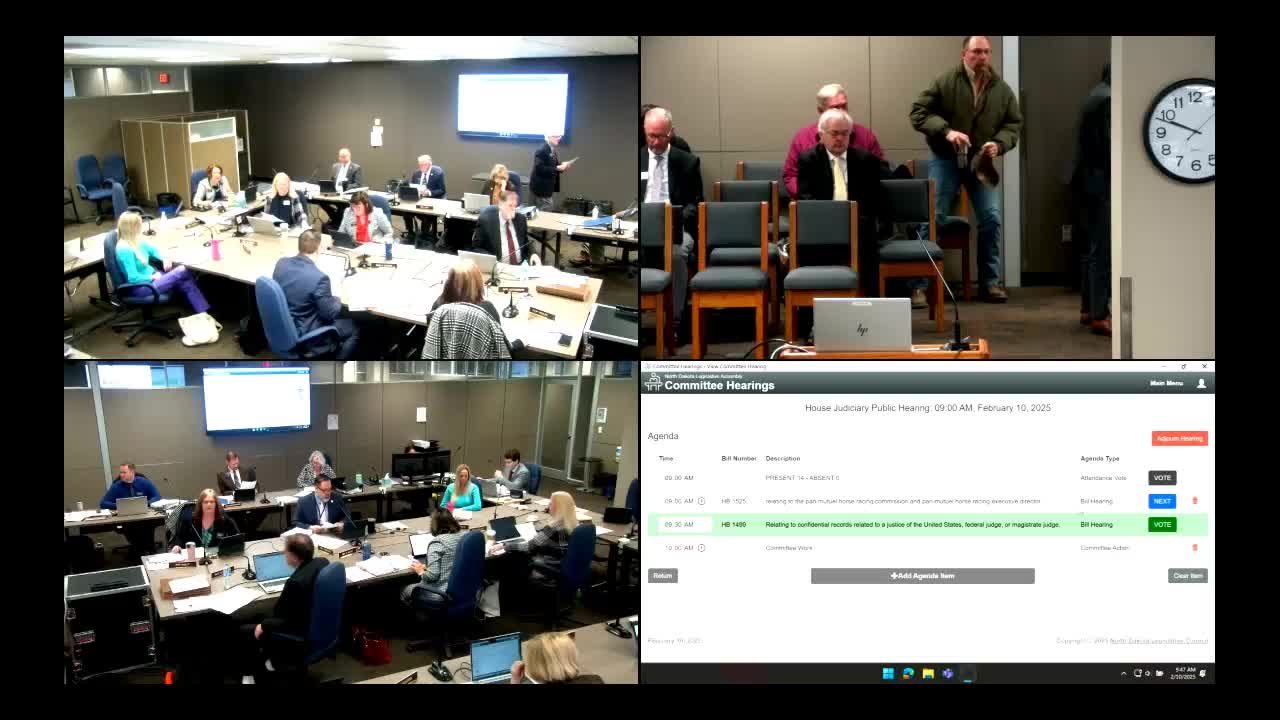Article not found
This article is no longer available. But don't worry—we've gathered other articles that discuss the same topic.

House bill would reshape gaming oversight, shift sanction authority from AG to a larger commission

Committee amends and advances several reentry and corrections bills; mixed votes and procedural referrals follow

